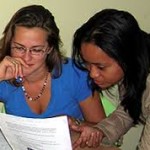This week we are going to start a series of blogs looking at bilingual artists who come from Spanish-  speaking countries but have also achieved phenomenal success in the English-speaking world. We start with actress, director and producer Salma Hayek who was born Salma Hayek Jiménez in Veracruz, Mexico on 2 September 1966 and educated in Louisiana, USA from the age of twelve.
speaking countries but have also achieved phenomenal success in the English-speaking world. We start with actress, director and producer Salma Hayek who was born Salma Hayek Jiménez in Veracruz, Mexico on 2 September 1966 and educated in Louisiana, USA from the age of twelve.
We’ve mentioned in previous blogs the popularity of TV telenovas in Latin America, and that is where Salma’s career began in the series Teresa. She progressed to starring in Spanish-speaking films, notably El Callejón de los Milagros (Miracle Alley), for which she was nominated for the prestigious Ariel Award, the Mexican equivalent of the Oscars.
In 1991 she moved to Hollywood and gained fame starring in films such as Desperado (1995) and Once Upon a Time in Mexico (2003) alongside Antonio Banderas. The role which really won her critical acclaim, however, was the 2002 film Frida, which she co-produced, and in which she played Mexican artist Frida Kahlo, whom we have also profiled in a previous blog. The role won her Best Actress nominations at the Academy Awards, BAFTAs, Screen Actors Guild Awards and Golden Globes.
Hayek’s stellar career is all the more impressive when you consider that she had limited fluency in English when she moved to America, and also suffers from dyslexia. It goes to show that with determination and perseverance, it is possible to achieve almost anything. If you have the drive to master another language, and are looking for a Spanish teacher in London, then get in touch and find out how we can help you.
 many different ways of learning a language, and many different types of student with their own learning styles. For a great many people, their word ‘lesson’ is synonymous with being in a classroom with a group of other students; they feel comfortable in this traditional setting and they may decide to enrol on a Spanish course at their local night school. While we certainly don’t want to be disparaging about this type of course, they are bound to a great degree by the curriculum which is set for them by their local authority and they are obliged to cater for a wide range of students with different abilities and learning objectives. Classes will go at a pre-determined pace and quicker learners can sometimes feel held back by the slower ones.
many different ways of learning a language, and many different types of student with their own learning styles. For a great many people, their word ‘lesson’ is synonymous with being in a classroom with a group of other students; they feel comfortable in this traditional setting and they may decide to enrol on a Spanish course at their local night school. While we certainly don’t want to be disparaging about this type of course, they are bound to a great degree by the curriculum which is set for them by their local authority and they are obliged to cater for a wide range of students with different abilities and learning objectives. Classes will go at a pre-determined pace and quicker learners can sometimes feel held back by the slower ones. probably occurred to you at one time or another how much easier it would be if you could pick it up as easily as you picked up your native language. So why don’t we?
probably occurred to you at one time or another how much easier it would be if you could pick it up as easily as you picked up your native language. So why don’t we?
 occupation requires them to do business internationally; for others it is purely a question of taking pleasure in learning, but most people embark on a language course because they already have an interest in the country in which the language is spoken, and its culture. Those attending our
occupation requires them to do business internationally; for others it is purely a question of taking pleasure in learning, but most people embark on a language course because they already have an interest in the country in which the language is spoken, and its culture. Those attending our 



